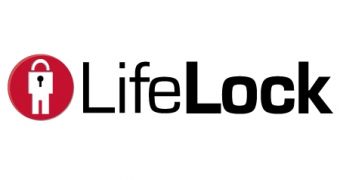A California judge has banned LifeLock, a company offering identity theft protection services, from placing fraud alerts on its customers' credit profiles. The ruling comes after Experian, one of the three credit reporting bureaus in the U.S., has sued LifeLock, claiming that this practice was violating the Fair Credit Reporting Act (FCRA) and costing it money.
A fraud alert has the purpose of letting banks, retailers and other credit granters know that they should perform more serious checks before opening a credit or issuing a credit card in someone's name. A fraud alert usually requires the potential creditor to at least call the individual whose credit profile is tagged.
Under the FCRA, the option of placing a fraud alert on their credit file is offered at no cost to consumers. All someone has to do is contact one of the three credit reporting bureaus, Experian, TransUnion and Equifax. However, an alert of this sort expires after 90 days and has to be renewed, which is somewhat of an inconvenience for people who don't have time to do it themselves.
Arizona-based identity protection company LifeLock offers to place and renew fraud alerts on behalf of its customers for a fee of $10 per month, along with other services. However, Experian claims that, in the process of doing this, LifeLock has indirectly caused the credit reporting bureau to spend millions of dollars to process the alerts.
Judge Andrew Guilford of the Central District of California agreed and temporarily banned LifeLock from engaging in the practice until the full trial. "Congress expressly excused Experian and other credit reporting agencies from placing fraud alerts requested by companies like LifeLock. The court finds that this is a proper interpretation of the plain meaning of the statute," the ruling reads.
Judge Guilford considered that, even though the FCRA allowed third-parties to file fraud alerts on behalf on an individual, this did not include companies, but family members, legal guardians, or attorneys. Other companies, similar to LifeLock, as well as privacy specialists, generally disapproved of this decision.
"I can hire someone to do my taxes. There's a similar concept here. ...The idea that they are somehow protecting consumers with this ruling by making them do the work doesn't make sense," Todd David, LifeLock's CEO, comments for MSNBC. However, he is confident that this will not affect the company's customers, because the decision applies only to fraud alerts filed with Experian.
The Fair Credit Reporting Act requires credit reporting bureaus to share all records between each other, meaning that, if LifeLock will continue to file fraud alerts with TransUnion or Equifax, they will eventually also end up on Experian's records. Granted, in this case, the costs suffered by Experian will significantly be reduced.

 14 DAY TRIAL //
14 DAY TRIAL //